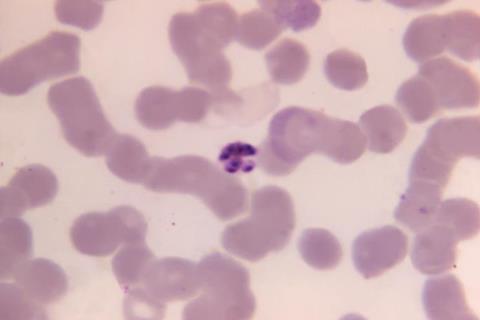The R21 vaccine is the second malaria vaccine prequalified by WHO, following the RTS,S/AS01 vaccine which obtained prequalification status in July 2022. Both vaccines are shown to be safe and effective in clinical trials, for preventing malaria in children. When implemented broadly, along with other recommended malaria control interventions, they are expected to have a high public health impact.
High burden
Malaria, a mosquito-borne disease, places a particularly high burden on children in the African Region, where nearly half a million children die from the disease each year. Globally, in 2022, there were an estimated 249 million malaria cases and 608 000 malaria deaths across 85 countries.
The prequalification of the world’s second malaria vaccine, developed by Oxford University and manufactured by Serum Institute of India, is poised to expand access to malaria prevention through vaccination. Demand for malaria vaccines is high but the supply has thus far been limited. The availability of two WHO recommended and prequalified malaria vaccines is expected to increase supply to meet the high demand from African countries and result in sufficient vaccine doses to benefit all children living in areas where malaria is a significant public health risk.
Safe and effective
Dr Rogério Gaspar, Director of the Department of Regulation and Prequalification at WHO said: “Achieving WHO vaccine prequalification ensures that vaccines used in global immunization programmes are safe and effective within their conditions of use in the targeted health systems. WHO evaluates multiple products for prequalification each year and core to this work is ensuring greater access to safe, effective and quality health products”.
Dr Kate O’Brien, Director of WHO’s Department of Immunization, Vaccines and Biologicals, said: “Today marks a huge stride in global health as we welcome the prequalification of R21/Matrix-M, the second malaria vaccine recommended for children in malaria endemic areas.
”This achievement underscores our relentless commitment to wiping out malaria which remains a formidable foe causing child suffering and death. This is another step toward ensuring a healthier, more resilient future for those who have lived for too long in fear of what malaria could do to their children. Together with our partners we are united in the pursuit of a malaria-free future, where every life is shielded from the threat of this disease.”
As part of the prequalification process, WHO applies international standards to comprehensively evaluate and determine whether vaccines are safe, effective and manufactured to international standards. WHO also ensures the continued safety and efficacy of prequalified vaccines through, for example, regular re-evaluation, site inspection and targeted testing. Prequalification supports the specific needs of national immunization programmes with regards to vaccine characteristics such as potency, thermostability, presentation, labelling and shipping conditions.








No comments yet